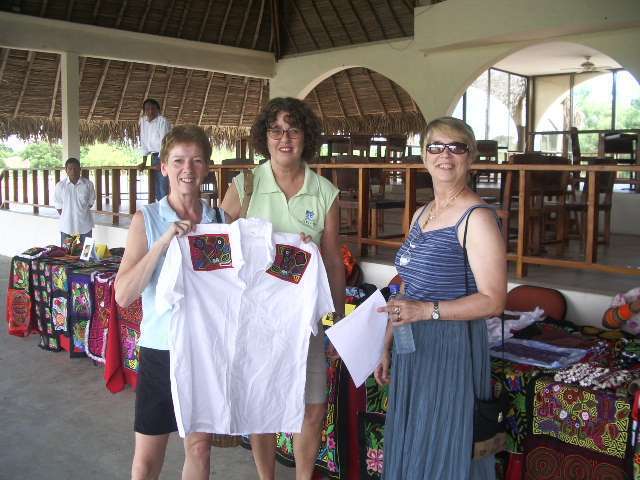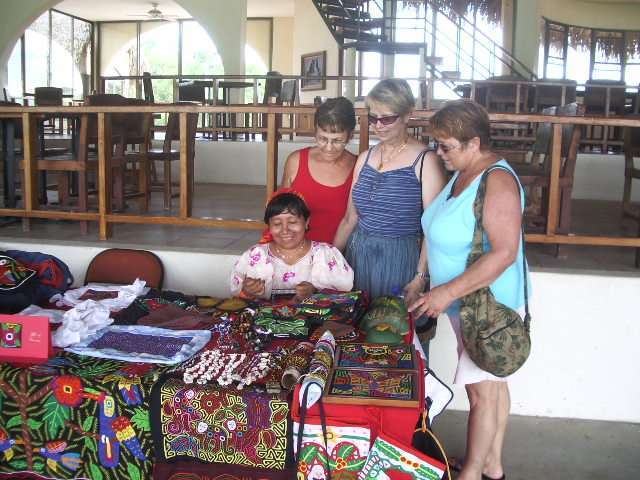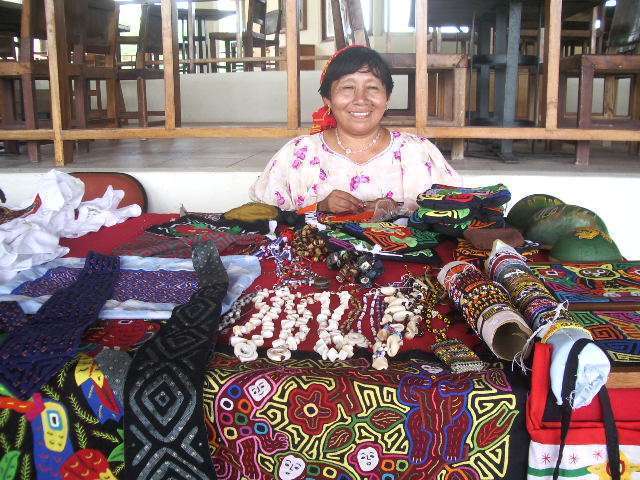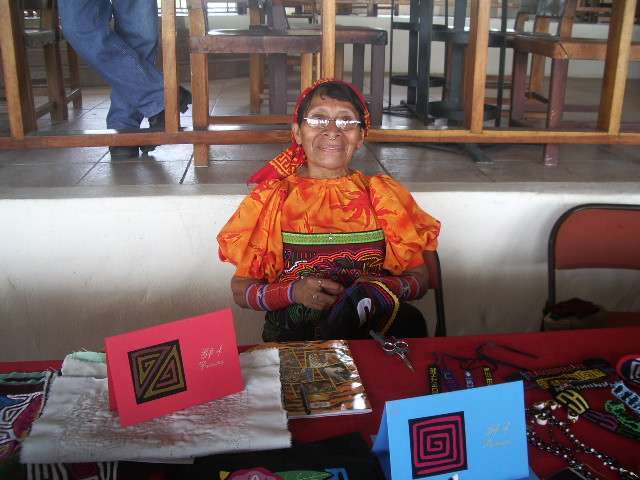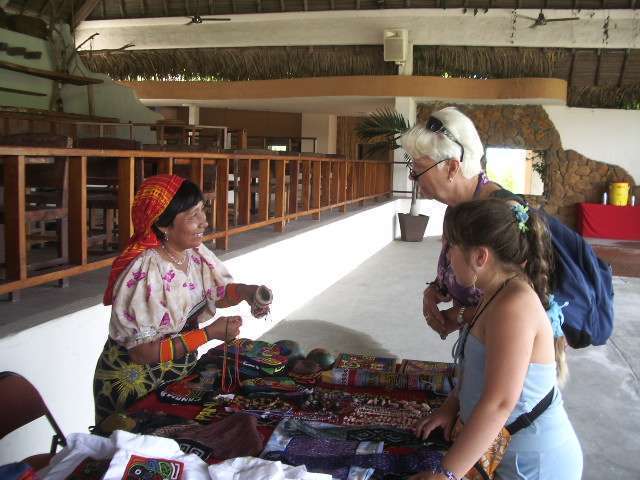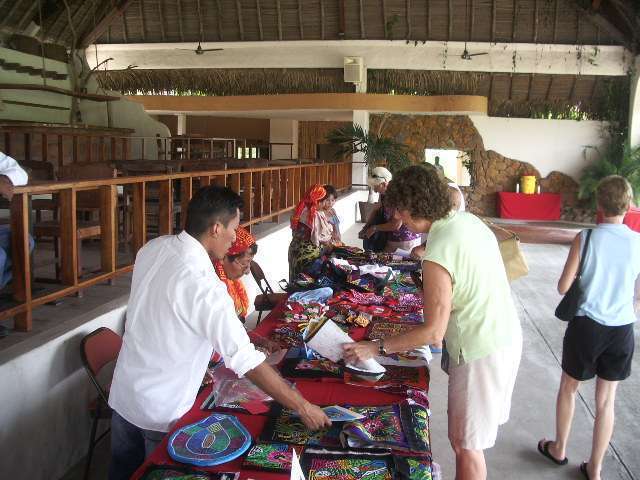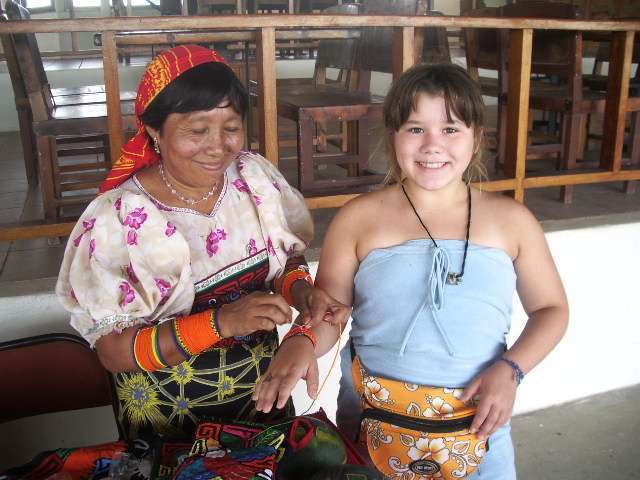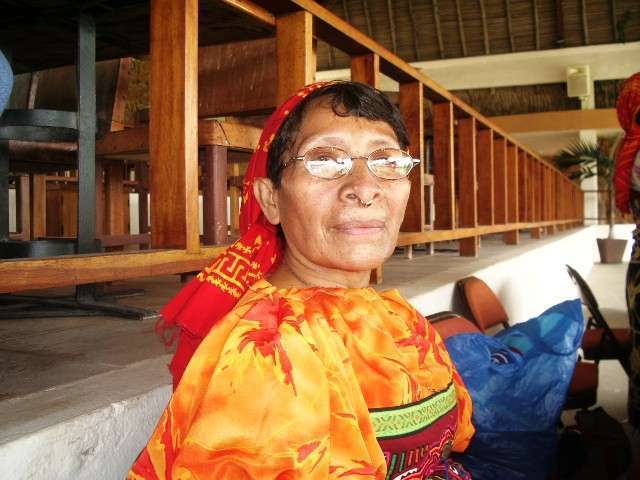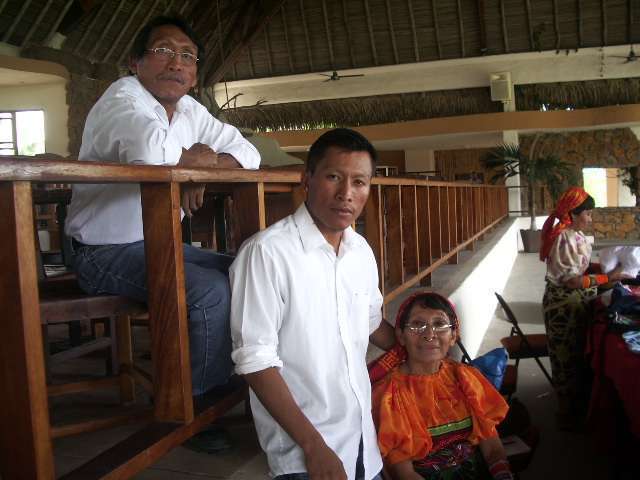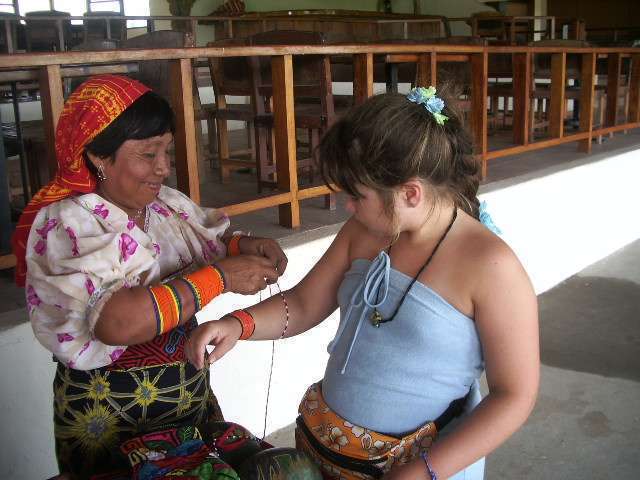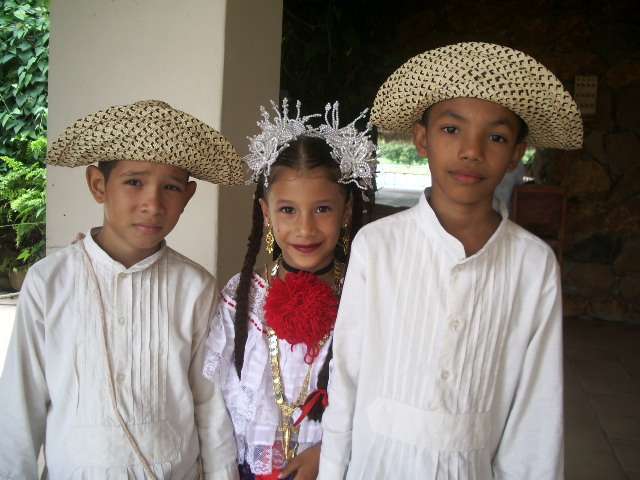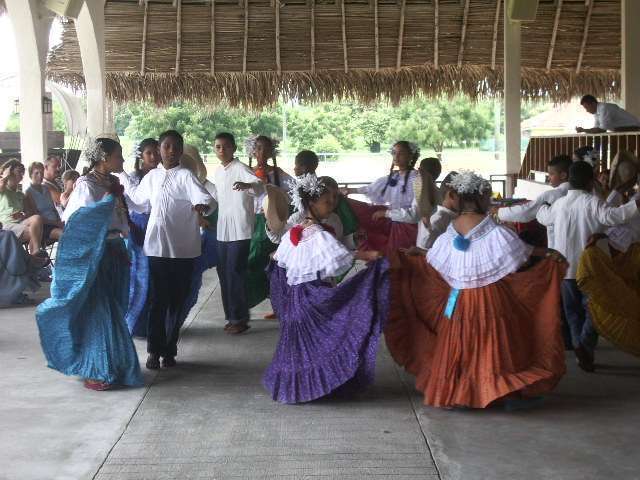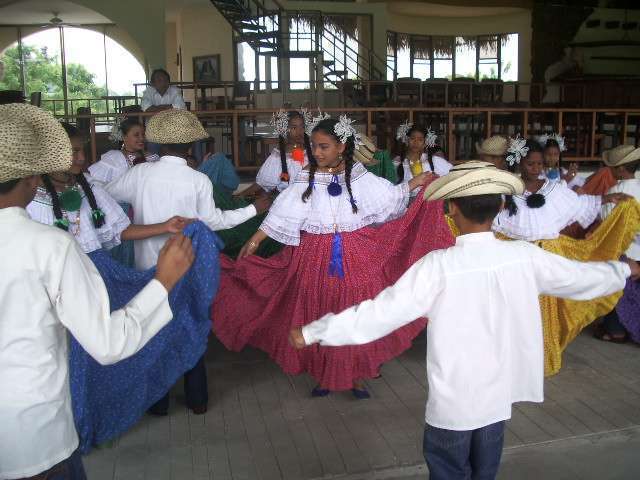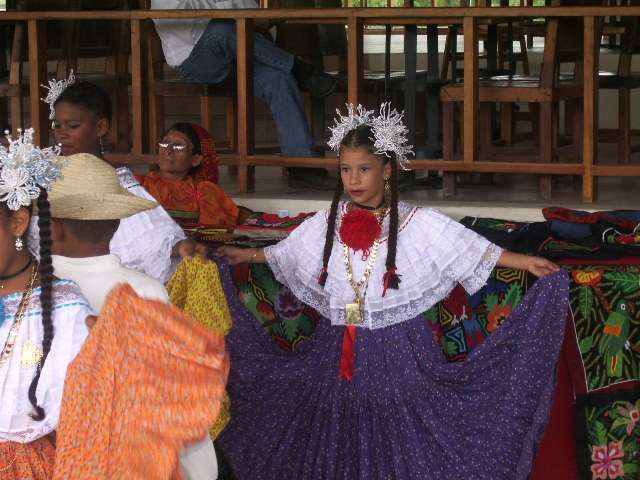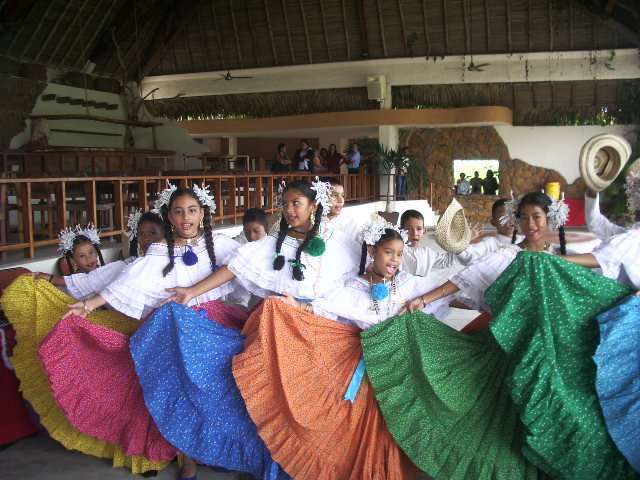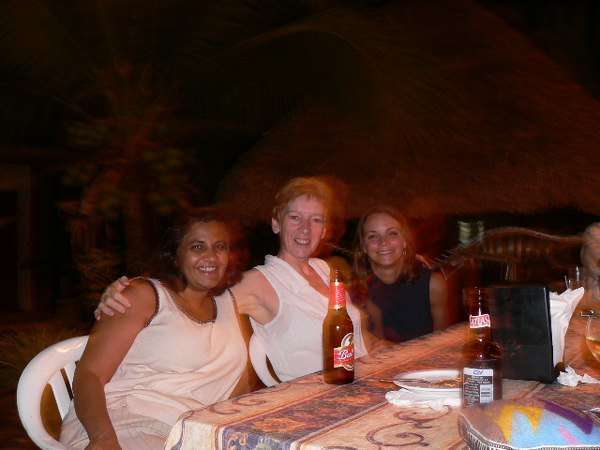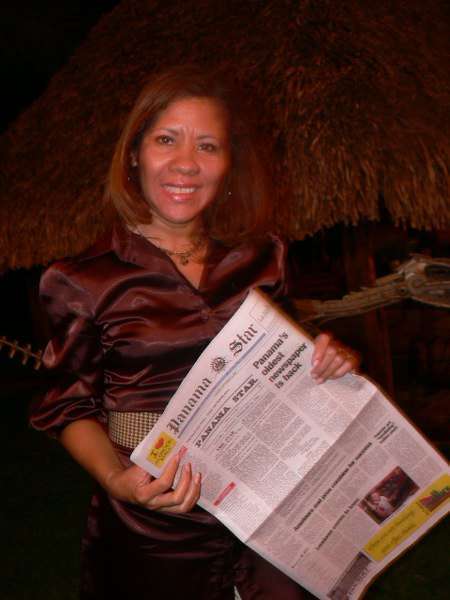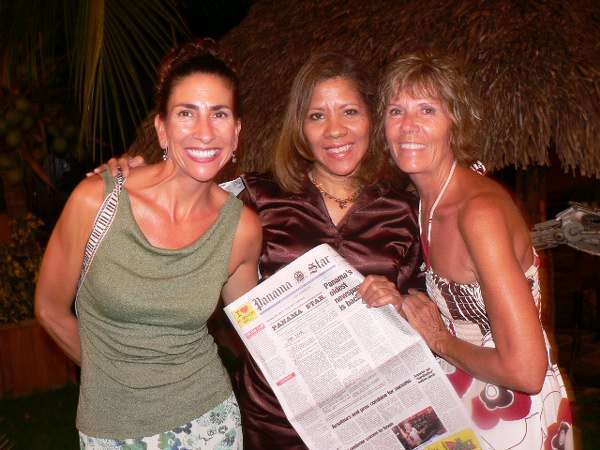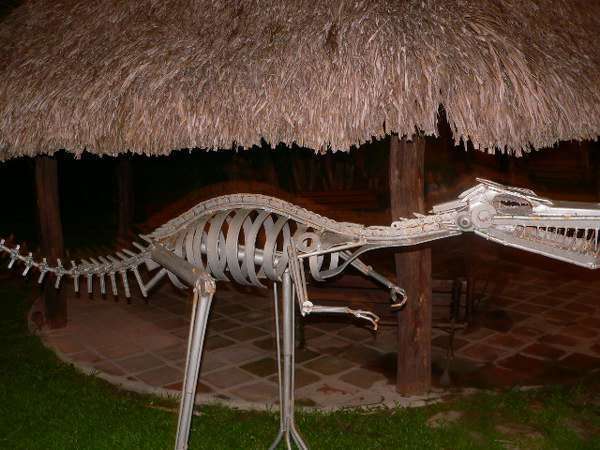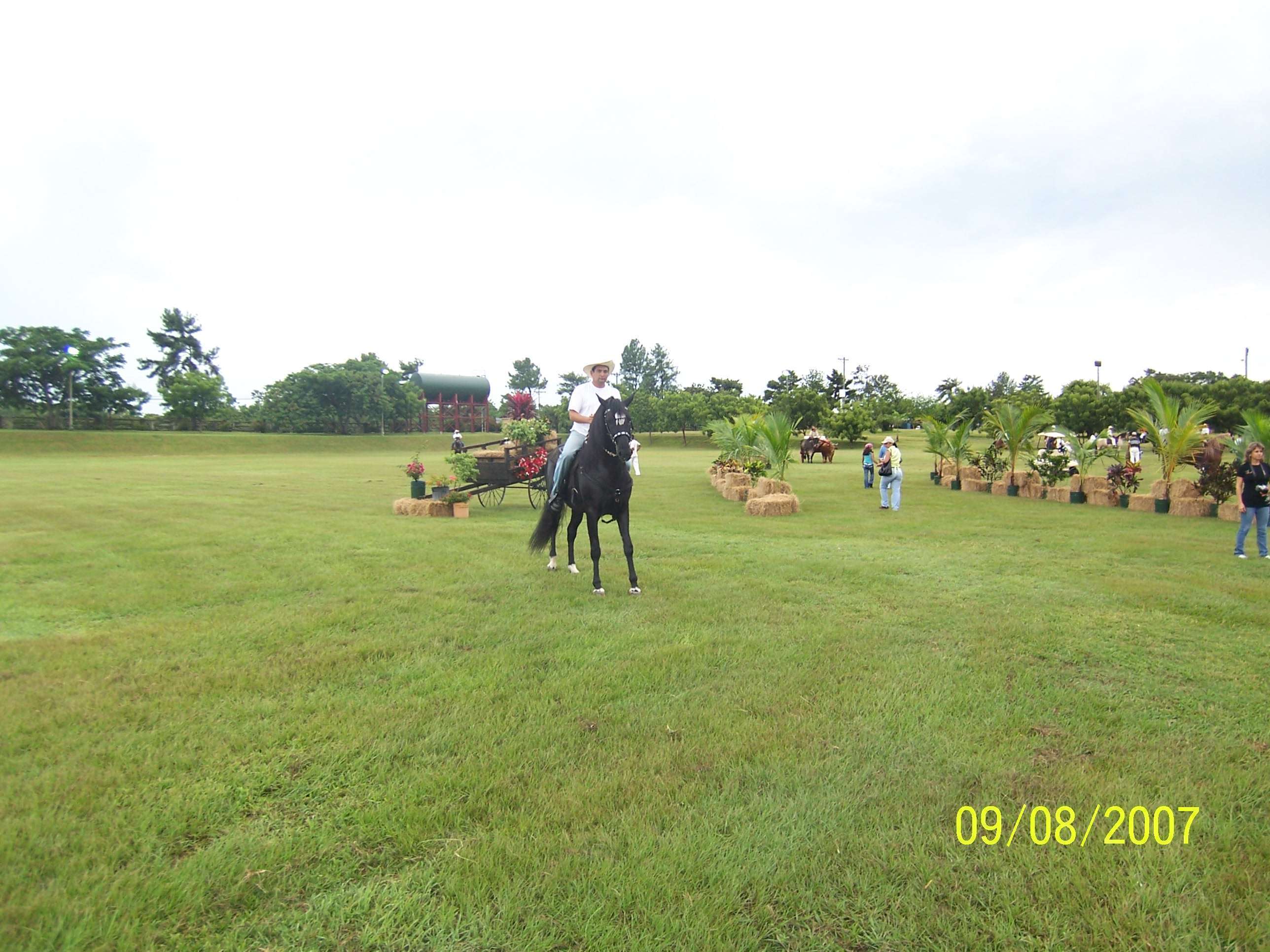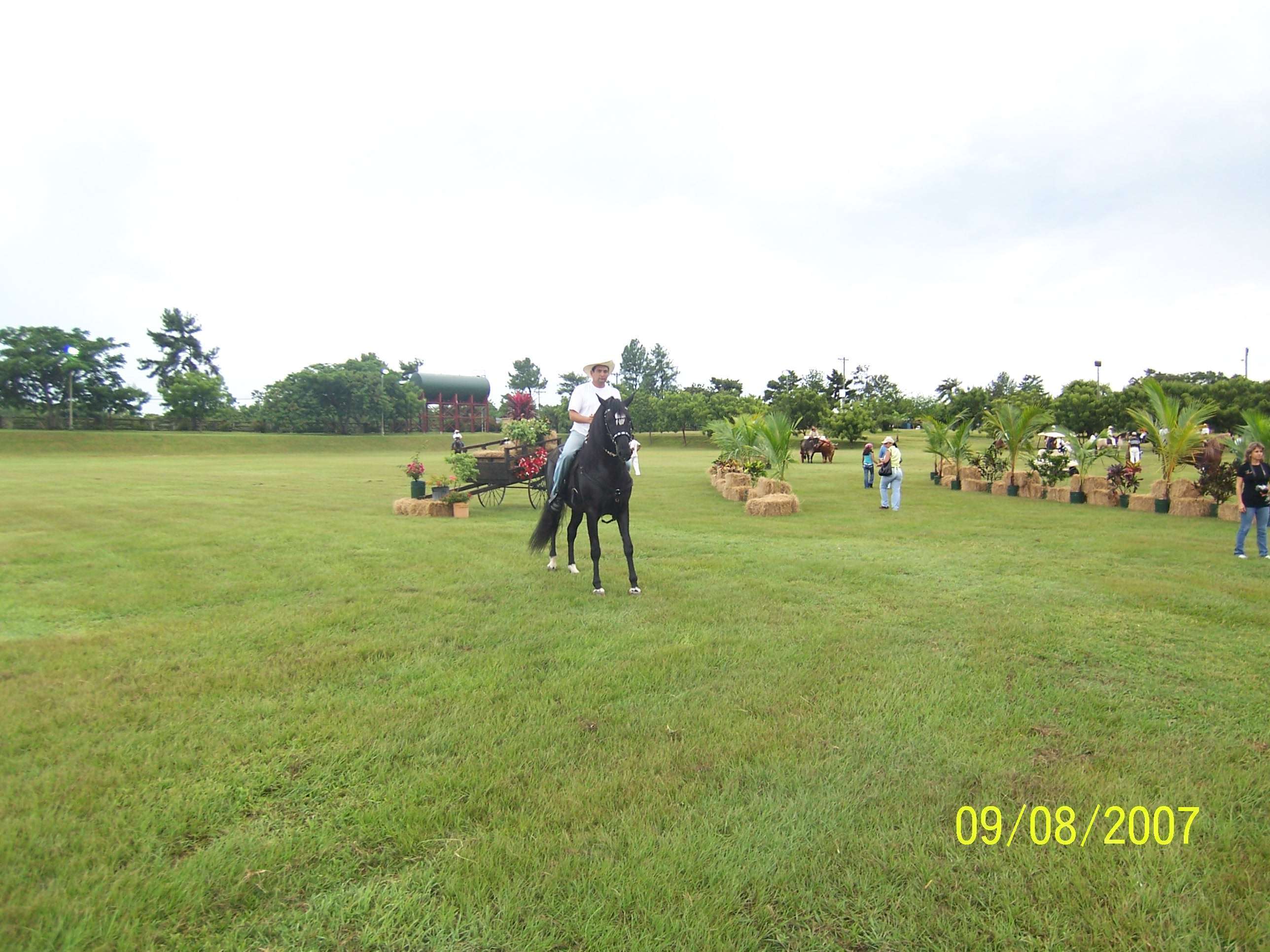Molas, a Gift from Panama's Kuna People

On Wednesday, August 15, Coronado hosted an exhibit of Molas at the Club Equestre. Molas are hand-sewn cloth panels made by the Kuna Indian Women from San Blas, Panama. The Comarca of San Blas comprises 350 islands and inlets of which sixty are inhabited, located in the Caribbean waters off the coast of Panama. Kuna men are typically Fishermen.
A Mola panel can have two to seven layers of cloth. The layers of fabrics, cut in rectangles, are basted together and a design is sketched then stitched into the layers. A typical Mola size, one foot by 2.5 feet, takes approximately two months for an Artist to complete.
The Indian Artists are inspired by everything when determining a theme for their Molas. The dominance of realistic objects in the Mola motifs stems from an observance of nature in everyday jungle and village life, to images conjured from dreams, fantasies and pure imagination, including abstracts of monsters and devils. Geometrics and nature unquestionably dominate the Mola theme: birds, animals, sea-life, plants and flowers are the subjects of many pieces. Tribal teaching, superstitions and village life are also recorded in the fabric panels.
The tools and supplies needed to design and make a Mola are simple and basic: cotton fabric, thread, a pencil, scissors, a thimble and a needle.
A Kuna family, the Gonzalez’s, were demonstrating their skills while helping shoppers find just the right gift, either for themselves or a lucky loved one. The Gonzalez family organizes a Foundation called Fundacion Kalu Ibaky, in the San Blas Islands. Efrain Castillero Gonzalez, his wife, Kiina Castillero, and their son, Emeida Devis traveled to Coronado in order to make the Exhibit possible. Kiina Castillero is the President of the Fundacion Kalu Ibaky.
During the Exhibit the Eisennman Elementary School’s Folkloric Dance Group performed five typical Panamanian dances. These children are required to keep a high grade point average in order to participate in the Dance Program. The children and their parents are very dedicated to the program and are proud to share their culture with visitors. The Folkloric Dance Group is active in the community and work very hard throughout the year to prepare for events and celebrations, from performing their Christmas special to dancing at fiesta’s and parades. The families of the children who dance are responsible for purchasing the costumes. Typically, family members will pitch-in to purchase, or make the Dancers’ costumes.
Contact the Fundacion Kalu Ibaky:
http://www.kaluibaky.org/ Investigate site, information
Contact Emeida Devis @ igua_castillero@yahoo.es
Contact Efrain Gonzalez @ ibakymolas@yahoo.es
Telephone: 507-250-1834
Fax: 507-250-1740

